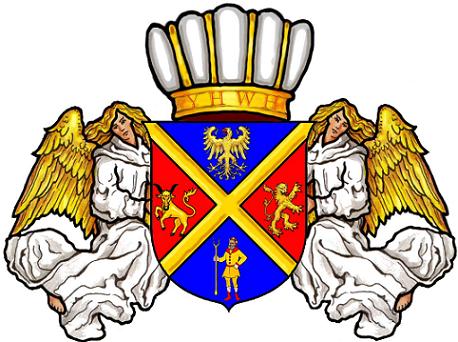
TCAWW Literature Bible Index
Christian History Books (click here)

|
IMPORTANT: Easton's Bible Dictionary is NOT exegetical, and can be counter to the scriptural or Hebrew and Greek definitions of words.
150 Years ago you couldn't be a Pastor anywhere in the world unless you were fluent in Hebrew..... Even in the so-called "Dark Ages" everyone had a local Priest who could speak, read and write in at least 2 languages, who taught out of a Latin Bible. How far have we fallen in word definitions! DO YOU BELIEVE THE WORD OF GOD OR BELIEVE IN THE OPPOSITE? *******Recommended Materials for In-Depth Research of Scripture********* Strong's Exhaustive Concordance, Complete and Unabridged (Every pastor uses or recommends this for their congregation) It's the main tool every Christian should have in their library along with a good Lexicon to get full definitions. Beware, using just Strong's alone without a Lexicon will not give you full definitions of many words since it's not meant to do the function of a Lexicon. You will need some of the following books to render in-depth research beyond the scope of Strong's Concordance: (Most of which are included in several computer programs such as PC Study Bible and online at HERE for FREE ACCESS) 1. The New Englishman's Greek Concordance and Lexicon of the New Testament, by Wigram-Green *These two books by Wigram-Green are what Strong's concordance is based upon. Every word in the bible is listed by (the original Greek and Hebrew)Strongs# rather than by English translation. You cannot miss the bible's definition of a word with this tool. You can see how the original word is used every time throughout the bible. This research tool makes any user blow away most any pastor these days.* 2. The New Englishman's Hebrew Concordance of the Old Testament, by Wigram-Green 3. Greek-English Lexicon of the New Testament by Thayers 4. Hebrew-Chaldee Lexicon to the Old Testament by Gesenius 5. Interlinear Greek and English by Berry 6. Young's Analytical Concordance to the Bible 7. Vine's Expository Dictionary of Old and New Testament Words Keyed to Strong's Reference Numbers You can also order the KJV "Hebrew Greek Key Study bible" which has built-in lexicons and Strong's numbering within the actual text of King James, or if you prefer you can also get it in New American Standard. (we reccomend King James Version) We know you can always use the bible as it's own lexicon and use the word to interpret the word, however, but these are shortcuts for all who are wise to make quick use of. Thank You for using our online searchable Strong's concordance and dictionary. You can get all these books at ANY Bible bookstore and most major bookstores. Or order from us right now click here The first keys are finding what the bible's definition of a word is in scripture, not in 21st Century word definitions or MAJORITY Religious Doctrines in the broad path which leadeth to destruction. These tools help you see how the original word is used through the entire text of scripture, thus render the BIBLE'S Definition of a word since we live by Every Word and not by bread alone. Easton's (UnBiblical and sometimes FALSE) Bible Dictionary
|
Bush In which Jehovah appeared to Moses in the wilderness (Exo 3:2; Act 7:30). It is difficult to say what particular kind of plant or bush is here meant. Probably it was the mimosa or acacia. The words "in the bush" in Mar 12:26; Luk 20:37, mean "in the passage or paragraph on the bush;" i.e., in Ex. 3.
Butler Properly a servant in charge of the wine (Gen 40:1; Gen 41:9). The Hebrew word, mashkeh, thus translated is rendered also (plural) "cup-bearers" (Kg1 10:5; Ch2 9:4). Nehemiah (Neh 1:11) was cup-bearer to king Artaxerxes. It was a position of great responsibility and honour in royal households.
Butter (Heb. hemah ), curdled milk (Gen 18:8; Jdg 5:25; Sa2 17:29), or butter in the form of the skim of hot milk or cream, called by the Arabs kaimak, a semi-fluid (Job 20:17; Job 29:6; Deu 32:14). The words of Pro 30:33 have been rendered by some "the pressure [not churning] of milk bringeth forth cheese."
Buz Contempt. (1.) The second son of Nahor and Milcah, and brother of Huz (Gen 22:21). Elihu was one of his descendants (Job 32:2). (2.) One of the chiefs of the tribe of Gad (Ch1 5:14). (3.) A district in Arabia Petrea (Jer 25:23).
Buzi The father of the prophet Ezekiel (Eze 1:3).
By In the expression "by myself" (A.V., Co1 4:4), means, as rendered in the Revised Version, "against myself."
By and by Immediately (Mat 13:21; R.V., "straightway;" Luk 21:9).
By-ways Only in Jdg 5:6 and Psa 125:5; literally "winding or twisted roads." The margin has "crooked ways."
By-word Hebrew millah (Job 30:9), a word or speech, and hence object to talk; Hebrew mashal (Psa 44:14), a proverb or parable. When it denotes a sharp word of derision, as in Deu 28:37, Kg1 9:7, Ch2 7:20, the Hebrew sheninah is used. In Jer 24:9 it is rendered "taunt."
Cab Hollow (R.V., "kab"), occurs only in Kg2 6:25; a dry measure, the sixth part of a seah, and the eighteenth part of an ephah, equal to about two English quarts.